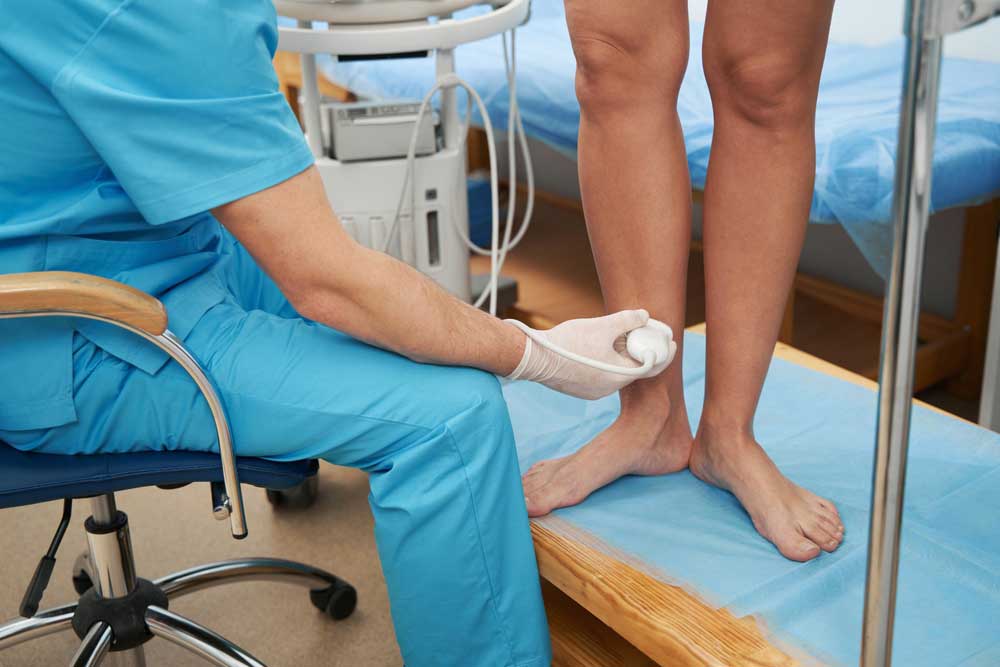Finding the Right Specialist for Your Vein Care | MO Vein Care

As a vein specialist who has dedicated much of my career to helping patients with vein conditions, I often hear the question: "What kind of doctor should I see for a vein condition?" It's an excellent question, and I'd like to share my insights to help you make the best choice for your vein health.
Understanding Vein Specialists: Who We Are
First, let me clarify something that might surprise you: vein specialists can come from various medical backgrounds. We might have started our careers in family medicine, internal medicine, radiology, vascular surgery, cardiovascular surgery, cardiology, or interventional radiology. What matters most isn't our original specialty, but rather our current focus and experience in treating vein conditions.
For myself, I started in vein care after a career in cardiovascular surgery. I benefited from a surgical experience which made the transition to vein care very easy, which I have been focused on exclusively since 2007.
What Really Makes a Trusted Vein Specialist?
One of the most important factors to consider when choosing a vein specialist is how frequently they perform vein treatments. Think of it this way: if you need your hair styled for a special occasion, would you prefer someone who cuts hair once a month or a stylist who works with clients daily? The same principle applies to medical care.
I recommend looking for a specialist who performs vein treatments one or more times a week. This regular practice is crucial because it allows the practitioner to develop and maintain what we call "pattern recognition" in medicine.
Pattern recognition is the ability to quickly identify:
- The specific patterns of various vein conditions
- Which patients will benefit from treatment
- The subtle nuances that may indicate that another condition may be present
How to Check a Vein Specialist's Experience
Don't be shy about asking questions when you call a vein clinic. Some helpful questions include:
- How many days per week does the doctor perform vein treatments? It may be a clinic with multiple doctors, so find out about your doctor specifically.
- How many actual treatments does your doctor do a week? Be prepared that the clinic may not share this with you.
- What percentage of the practice is dedicated to vein care?
The Importance of Vein Ultrasound Expertise
Let me share something that I believe sets apart exceptional vein specialists: their expertise with ultrasound imaging. This might seem like a technical detail, but it's actually a crucial factor in providing the best possible care.
While some practices rely on separate ultrasound technologists (which can work well), I believe there's a distinct advantage when your specialist can perform and interpret ultrasounds themselves. It's like the difference between getting information secondhand versus seeing something with your own eyes. When I can look at the ultrasound myself, I can:
- Make immediate assessments
- Explain what I'm seeing directly to you
- Answer your questions on the spot
- Plan treatment more efficiently
- Procedure time is also reduced.
If you've ever had an ultrasound during pregnancy, you're familiar with the process—it’s the same basic technology, just applied differently. We use a small probe with gel to look inside and get a clear picture of your veins. The procedure is painless, non-invasive, and incredibly informative.
Ultrasound technology allows us to:
- See inside your veins in real-time
- Make immediate, accurate diagnoses
- Plan and execute treatments with precision
Make Sure a Standing Ultrasound is Performed
Make sure your specialist and your team perform a standing ultrasound. Not every clinic does this; a standing ultrasound is the recommended way to determine if a vein condition is present because it has been shown to be more sensitive in detecting vein reflux.
However, when it comes to detecting vein conditions, a specialized type of ultrasound is required: a standing vascular ultrasound. Unlike traditional ultrasounds, which are performed while you’re lying down, vascular ultrasound is done with you in a standing position. Why? Because vein conditions, such as venous insufficiency, are often influenced by gravity. When you’re standing, blood flow in your veins behaves differently compared to when you’re lying flat. This position allows us to see how your veins are functioning under real-world conditions, such as whether blood is pooling or if there are any issues with your vein valves. By performing the ultrasound while you’re standing, we can get the most accurate and detailed assessment to guide your treatment plan effectively.
Why Choose Missouri Vein Care
As a board-certified cardiovascular surgeon, I bring extensive expertise from a specialty, which places an emphasis on technical proficiency and attention-to-detail. You can't be a successful cardiac surgeon without it and I think it has really made the transition to vein care smooth and successful. But what truly sets me apart is my personal experience—I have lived with a vein condition since college and know firsthand how debilitating it can be. Undergoing treatment myself has been transformational, and it has given me a unique ability to empathize with my patients. This perspective allows me to diagnose and treat with both precision and compassion. My goal is to help you find relief and show you that effective treatments can truly change your life.



